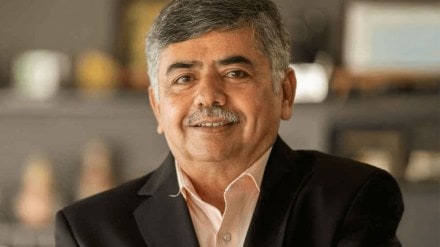In the Tata universe, former Titan MD Bhaskar Bhat is an insider. The 71-year-old retail veteran was back in the spotlight this week when he was inducted (along with Neville Tata) as a trustee of the Sir Dorabji Tata Trust (SDTT), among the largest philanthropic entities of the Tata group.
SDTT has a nearly 27.98% stake in Tata Sons, the holding company of the salt-to-software conglomerate, making it the largest shareholder among the Tata Trusts. Sir Ratan Tata Trust, another important trust, has a 23.56% stake in Tata Sons. Together, the two trusts own more than 51% of Tata Sons, making Bhat’s appointment, which is for a three-year tenure, critical.
He is also the first among Tata group veterans to be tapped by Tata Trusts chairman Noel Tata (as trustees) as the latter looks to consolidate his position within the group, experts said, a year after Ratan Tata’s demise. Bhat and Neville Tata’s appointment to SDTT also came after erstwhile trustee Mehli Mistry parted ways with the Tata group last week.
An alumnus of IIT Madras and IIM Ahmedabad, Bhat is widely credited with transforming Titan from a watchmaker to a lifestyle company. Bhat is said to have the ear of Noel Tata, say insiders who have witnessed his rise to the top at Titan over nearly four decades.
The jewellery and watchmaker remains among the Tata group’s most valuable companies, ranking second in terms of m-cap after Tata Consultancy Services (TCS). The groundwork for this growth was laid by Bhat during his tenure as Titan MD from 2002 to 2019.
In the 17 years as MD, Titan’s topline and bottomline grew at more than 21% each, touching Rs 19,960 crore (from Rs 727 crore in 2002) and Rs 1,388 crore (from Rs 13 crore), respectively, at the end of March 31, 2019. Under his watch, Titan rapidly expanded into categories such as jewellery, eyewear, perfumes, sarees and accessories.
Tanishq’s introduction of the Karatmeter, which measured the purity of gold in its stores, for instance, was a result of this rigorous study of market insights, he once said. It was intended to address a very pressing need for a proper quality test of gold jewellery, in an industry where jewellers routinely cheated customers on that count.
His successor, CK Venkataraman, has taken Titan to the next level, as consumers continued to lean towards trusted brands — notably in jewellery — even as digital-first brands disrupted the market. FY25 saw Titan cross the Rs 50,000-crore milestone in terms of topline, with over 80% of revenue coming from the jewellery division, led by Tanishq. Market capitalisation today stands at Rs 3.34 lakh crore to TCS’s Rs 11.3 lakh crore.
Hired by the late Xerxes Desai as the first employee of the Tata Watch Project (which later became Titan) in 1983, Bhat, who had previously worked with the Godrej group for five years, understood early on the importance of innovation in retail. He picked up his strong focus on manufacturing from “mentor” Desai and maintained that marketers should have their “ears to the ground” to understand the pulse of the consumer. The first Titan watch hit the market in 1987, four years after Bhat had joined the firm and three years after a joint venture between the Tatas and the Tamil Nadu Industrial Development Corp paved the way for private players to make watches.
Titan was instrumental in introducing quartz watches, considered more practical and accurate than mechanical watches. It made watches accessible to consumers, improved distribution and transformed them into a must-have accessory. Bhat would go on to replicate the retail model in watches into other lifestyle categories, building “desirable brands” that were marketed and distributed across channels and were available across the price pyramid.
The Tata group would also go on to become Bhat’s “comfort zone”, where he remained for 36 years as a professional leader. All eyes will be on how Bhat navigates the new chapter.
